
Many who struggle with symptoms of depression will attest that alcohol relieves their feelings of stress and anxiety. And in small doses, taken infrequently, this may be the case…but what happens when it becomes a habitual remedy, one which then develops into a real dependency?
When it comes to alcoholism and depression, an important question is, “Which came first?” In many cases, a person’s excess drinking may have started out as a desire for some ‘Dutch courage,’ which then became a habit whenever social situations arose, or when they were around new people for the first time. In other cases, an individual may have unresolved personal issues, such as childhood trauma, and lack the skills needed to move forward in life without reliance on substance abuse. 1
However, in addition to all these possibilities exists another issue: that most mood disorders include some susceptibility to alcohol or drug abuse. When the brain, and the body as a whole, has not been nutritionally supported, imbalances occur, contributing to future mental and physical imbalances. It is for this reason that, when beginning the healing process, it is often a specific nutrient that is most needed to ensure a successful start. For instance, in the case of alcoholism, a B vitamin called thiamine becomes depleted; therefore, it must be replaced for a successful reversal of alcoholism to occur.
That said, there is no one standalone item that acts as a cure all, at least not without sufficient amounts of key nutrients to support the proper functioning of our bodies.
Identifying Alcoholism
When a person drinks heavily using alcohol as a coping mechanism, the alcohol they consume will become a depressant and intensify their feelings of anger or sadness.1 These issues are made all the more common by how accepted the consumption of alcohol is in North American society, which is the source of many serious problems, from people losing their jobs and families to deaths caused by drunk drivers.
A truly problem drinker can find themselves developing alcohol use disorder (AUD), the symptoms of which include:
Too much time spent drinking alcohol
Repetitive drinking patterns of drinking excessively for too long a time period
Alcohol cravings
Not curbing drinking even when it is causing problems in relationships and other activities like work
Limiting time of activities in favor of drinking
Changing activities in favor of being able to drink while the activity is going on, like fishing or watching sports
Continuing to drink even when your mood shifts more into depression and sadness
Not wanting to change your drinking habits even though the link between depression and alcohol is irrefutable
It is reported that about one third of people suffering with major depressive disorder have a co-occurring (mental and abuse problem coinciding) drinking problem like AUD.2
Alcohol Abuse Intertwines with Depression
It is not uncommon for people to drink alcohol as their way of dealing with their depression. They might be drawn to its sedative effects; there are other people who may not normally drink, but will use alcohol to help them get to sleep.
Alcohol abuse never leads to a good place. It may seem as though your symptoms of depression have been alleviated, but over time your condition will continue to worsen. In the bigger picture, every aspect of a person’s life is negatively impacted by alcohol abuse.
Longer periods of depression will always follow ongoing alcohol abuse. When coupled with antidepressants for those already diagnosed with depression, the depressive effects of the alcohol will worsen the depression and make the medication less effective.3,4
How Does the Body Process Alcohol?
Alcohol goes through a two-step process in order to eliminate ethanol from the body. Ideally most of ethanol is processed in the liver, broken down by the enzyme ADH. Alcohol dehydrogenase then converts ethanol into a toxic compound called acetaldehyde (CH3CHO).5
Once it turns into acetaldehyde, which is also a known carcinogen, creates problems. Dr. Robert Swift is a researcher and physician who has spent a great deal of time investigating alcoholism at Brown University. He states: “Acetaldehyde is nasty stuff,” and that “it’s like formaldehyde, which is embalming fluid. It destroys proteins. It destroys DNA.” It is hypothesized among scientists that acetaldehyde is the cause of hangovers in all people.6
Fortunately, in most healthy individuals (enzyme balanced) aldehyde dehydrogenase very quickly breaks down into the less toxic compound acetaldehyde. Acetaldehyde is then broken down into other compounds like acetate (CH3COO-) which is then broken down into carbon dioxide and water.7
Who Cannot Process Alcohol?
However, there are those whose genetic make-up inhibits their ability to break down alcohol, leading to a much greater risk for alcohol abuse. In particular, individuals who either lack or have insufficient amounts of the enzyme alcohol dehydrogenase (ADH), which is needed to process ethanol out of alcohol, are at risk. For example, North American Indians and 1 in 3 Asians have this enzyme problem, which is why it is not uncommon to hear of a person of North American Indian decent dying from cirrhosis of the liver due to excessive alcohol consumption in their 20s. 8,9
Reports show that the liver can process one standard drink per hour—provided the individual possesses normal enzyme levels. When too much alcohol is consumed too quickly, it builds up in the blood and body tissues such as the brain until such time as it can be broken down and processed by the liver. 10,11
Alcohol Abuse Can Lead to Depression
It isn’t hard to imagine why a depressed person may be more inclined to turn to alcohol. However, it seems that depression symptoms will continue to surface and worsen from alcohol abuse, according to the National Institute on Alcohol Abuse and Alcoholism (NIAAA). As a depressive state increases, so too does alcohol consumption.
To treat depression that presents with alcoholism, as with most mood disorders, a variety of therapies in conjunction with correcting and supporting nutritional imbalances is the best course of action. Treatment methods would involve Cognitive Behavioral Therapy to prevent a relapse by modifying dysfunctional thinking and behavior patterns. An important benefit to this therapy is in how it prepares a person for the eventual outcomes of problems that may arise, in order to curb their otherwise ‘normal’ reaction of turning to alcohol. These individuals are in need of better coping skills in addition to nutritive support, and according to the National Institute on Drug Abuse (NIDA), CBT is a highly beneficial therapy in these cases.12
References
1. Which Came First, Depression or Alcoholism? – The Ranchhttps://www.recoveryranch.com/articles/…/which-came-first-depression-or-alcoholism/
2. Can Alcohol Induce Depression? https://americanaddictioncenters.org/alcoholism-treatment/depression/
3. Howard J. Edenberg, Ph.D. The Genetics of Alcohol Metabolism: Role of Alcohol Dehydrogenase. https://americanaddictioncenters.org/alcoholism-treatment/depression
4 . Aldehyde Dehydrogenase Variants. Alcohol Res Health. 2007; 30(1): 5–13.https://www.ncbi.nlm.nih.gov/pmc/articles/PMC3860432/
5. NIAAA Publications – National Institute on Alcohol Abuse and Alcoholism https://pubs.niaaa.nih.gov/publications/aa72/aa72.htm
6. Howard J. Edenberg, Ph.D. The Genetics of Alcohol Metabolism: Role of Alcohol Dehydrogenase and Aldehyde Dehydrogenase Variants. Alcohol Res Health. 2007; 30(1): 5–13. https://www.ncbi.nlm.nih.gov/pmc/articles/PMC3860432/
7. NIAAA Publications – National Institute on Alcohol Abuse and Alcoholism https://pubs.niaaa.nih.gov/publications/aa72/aa72.htm
8. Alcohol and Your Body | Health Promotion | Brown University. https://www.brown.edu/campus-life/health/services/…other…/alcohol-and-your-body
9. Alcohol and Your Body – UCSC S.H.O.P Student Health Center
https://shop.ucsc.edu/alcohol-other-drugs/alcohol/your-body.html
10. Variations in ADH and ALDH in Southwest California Indians. https://pubs.niaaa.nih.gov/publications/arh301/14-17.htm 11. Alcohol Alert banner.Number 72. July 2007. Alcohol Metabolizing Process. https://pubs.niaaa.nih.gov/publications/aa72/aa72.htm
12. NIDA .https://www.drugabuse.gov/publications/principles-drug-addiction-treatment-research-based-guide-third-edition/evidence-based-approaches-to-drug-addiction-treatment/behavioral
Copyright © 2022 – All Rights Reserved – Michelle Honda Ph.D.
Announcement
Look for my new forthcoming books “Reverse Depression Naturally” (Spring 2020) “Reverse Inflammation Naturally” (May 31, 2017) “Reverse Thyroid Diseases Naturally” (June 2018) “Reverse Alzheimers/Dementia Naturally” (Nov.2018) “Reverse Heart Disease Naturally” (Jan.31, 2017) and “Reverse Gut Diseases Naturally Nov. 2016
Where to Purchase:
Reverse Gut Diseases Naturally Nov. 2016
Reverse Heart Disease Naturally Jan. 2017
Reverse Inflammation Naturally May 2017
Reverse Thyroid Disease Naturally June 28/2018
Reverse Alzheimers Disease Naturally Nov. 2018
Reverse Depression Naturally Spring 2020
Hatherleigh Press Page Buy Book RGDN
Local Book Stores in US and Canada
Disclaimer
While close attention was given to the accuracy of information in this article, the author accepts neither responsibility nor liability to any person with respect to injury, damage, loss or any circumstances involving alleged causes directly or indirectly related to the information in this article. The sole purpose is to educate and broaden ones awareness. This information is not meant to replace medical advice or services provided by a health care professional.





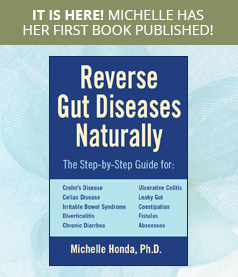

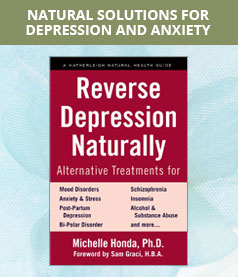
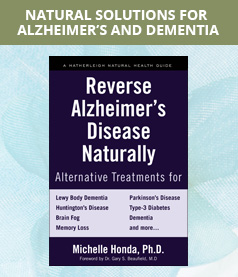
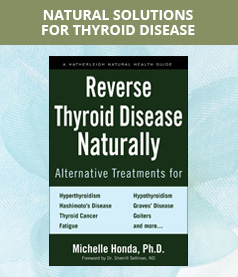

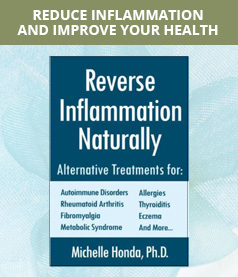
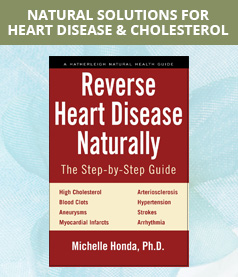
Follow Us!